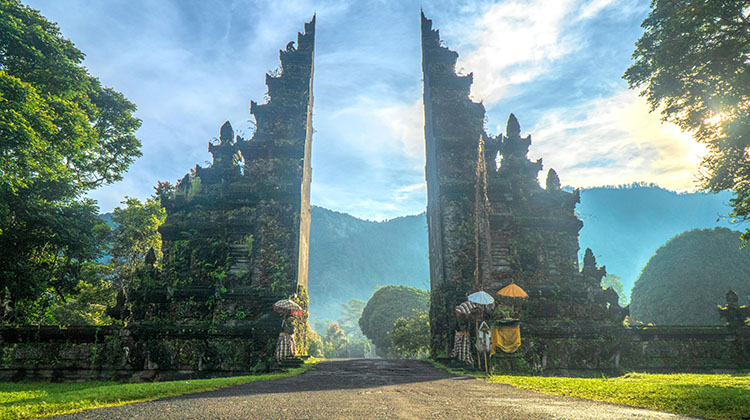Beware of Mixing the Bikes and Bintang

With its stunning beaches, vibrant nightlife, and a wealth of attractions - all at low cost - Bali draws school leavers looking for a memorable time, in November, over 8000 schoolies are anticipated to make the trip to the island.
There will likely be drinking but did you know that the legal drinking age in Bali is 21? Underage drinking is an offense and can lead to insurance claims being voided if you are under the influence.
Even though the Indonesian island is sometimes considered an extension of Australia, it's advisable for travellers to remember that there is no reciprocal health agreement, which is why comprehensive insurance is an absolute must.
Proper travel preparations, particularly comprehensive insurance, cannot be overstated.
It’s vital an insurance policy covers medical emergencies, trip cancellations, medical evacuations and adventurous activities. Additionally, adhering to the local laws is essential, as violating them could invalidate insurance claims.
“In Indonesia, drug offences are taken very seriously and can lead to heavy fines, long prison sentences, and even the death penalty. Schoolies should respect the drinking age of 21 and prescription drug regulations, which extend to certain medications, including those for ADHD and cannabis-based oils. All travellers should familiarise themselves with the Australian Government’s Smart Traveller website before departure and ensure emergency contacts and travel information is sent to friends and family,” says Insure&Go’s spokesperson, David Mayo
10 essential tips to Survive Schoolies in Bali
1 Surf’s up: Bali’s beaches are legendary for surfing, especially in hot spots such as Canggu and Uluwatu. But before you hit the sand, it’s best to check your insurance covers the water sports activity - such as surfing, parasailing or scuba diving - that you’re planning to enjoy. Your policy should provide a table of ‘covered’ and ‘excluded’ sports and activities. If your activity isn’t covered, they might require additional insurance coverage.
2 Scooter savvy: Renting a scooter is popular but risky. Check your insurance covers this activity, wear a helmet - and if it does, you’ll need to wear a helmet, regardless of the local laws, have the correct international license. If you are using a motorcycle rated 125cc or higher, you should hold a current and valid license for an equivalent-rated motorcycle in Australia. Better yet, hop on a Gojek ride and let an experienced rider navigate the roads.
3 Party smart: Bali’s nightlife is a lot of fun, including hotspots like Potato Head and KU DE TA in Seminyak, but keep to the mocktails.
4 Volcano treks: Bali’s Mount Batur offers sunrise hikes and offroad 4WDing. Ensure your insurance covers these high-altitude adventures.
5 ATV adventures: Quad biking through Bali’s rugged terrains is a popular activity. Verify that your travel insurance includes coverage for off-road vehicle activities to protect against accidents.
6 Shop till you drop: Hit up Garlic Lane in Legian or Poppies Lane in Kuta for some great shopping but remain aware of your surroundings. Consider wearing a money belt to keep your valuables secure in busy areas and investigate insurance that covers high-value items for added protection.
7 Sun smart: It’ll be the wet season for your visit in November and Bali's temperatures frequently reach 31°C. The heat and high humidity during this time make sunscreen and hydration essential to avoid sunburns, which could spoil your trip also lead to costly medical expenses. Let your insurance company know as soon as possible if you require medical treatment and follow any steps advised for making a claim.
8 Health precautions: Bali's tropical climate does increase the risk of contracting mosquito-borne illnesses such as dengue fever. While these critters are most active at dawn and dusk, they are capable of biting at any time of day. Protect yourself by using repellents and check your insurance covers for illnesses contracted abroad.
9 Monkey business: The Sacred Monkey Forest in Ubud is a fun day trip but be cautious as monkeys are crafty. These primates have been known to snatch bags, sunglasses, phones and cameras. Best to keep your valuables out of sight and have insurance cover in case of loss or theft. It's important to have proof of ownership, such as photos or receipts, and value of the stolen items.
10 Lost in paradise: If you happen to lose or misplace important travel documents like your passport, report the loss to the local police and obtain a police report within 72 hours or as soon as reasonably practicable. Then, visit the nearest Australian Consulate-General in Bali, located in Denpasar, to apply for an emergency passport. The Consulate can also provide assistance with replacing other travel documents and offer guidance on what to do next. It’s important to have a copy of your travel insurance policy and the police report when you visit the consulate. If you have purchased the appropriate level of cover, your travel insurance policy can cover the costs of replacing these important documents.